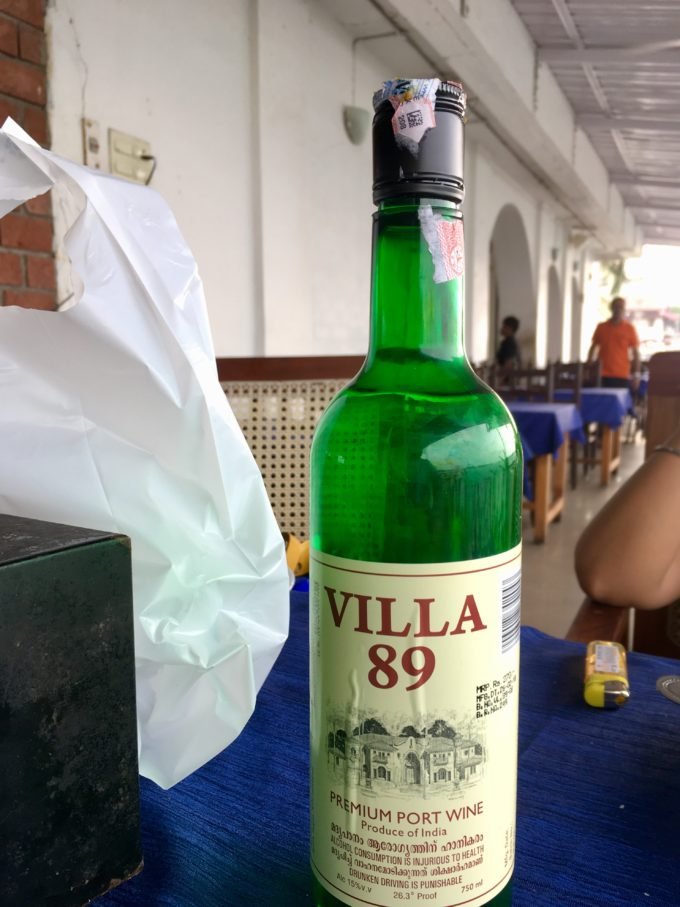
Dry, Cheap Port: The Perfect Antidote to Humidity

Dry, Cheap Port: The Perfect Antidote to Humidity
Port Wine in Cochin
Before we left for Cochin, I asked G one final time whether it’d be hot and humid. “No,” she said, reassuring me that I’d be fine. A slight spike in humidity, or just the whiff of approaching summer, makes me sweat. I looked at G, frowning and perspiring heavily. She made a face and looked away at the sea. G loves the sea. Any sea, any time, even in the summers.
March in Cochin, a teeming port city on the southwest coast of India, is hot and humid. Early mornings are bearable, but by afternoon when there is no prevailing wind on the sea and the temperatures rise, one perspires heavily, and the skin gets tanned and even scratched from wiping it down.
One day, we rented a scooter and drove to Fort Cochin, a leafy, cobblestoned seaside town, still carrying the imprints of the Portuguese, Dutch, and British colonists. At the end of the 15th century, the Portuguese explorer Vasco da Gama set foot in Cochin after discovering the sea route from Europe to India, which officially opened the age of European imperialism. On his third voyage to Cochin, he died after contracting malaria. “Poetic justice,” a friend of mine used to say.
Da Gama was buried in the St. Francis Church, not far from The Seagull Hotel, where G and I sat drinking beer. The hotel lies on the waterfront and originally belonged to a French rosewood exporter named CJ Revel. Revel sold it to an Indian musician after the French left India.
“Let’s order a bottle of port wine.”
“What do they have?”
“Villa 89.”
“Let’s order a bottle,” G said, looking away at the narrow expanse of the inland sea. Across the sea was a busy dockyard and beyond it were tall glass buildings that shone brilliantly in the hot sun.
Villa 89 is one of India’s most popular and cheap port wines. Red, crisp, dry, and meant to be drunk young, it is very sweet. After the first sip, we moved our tongue over our lips several times, because it felt so dry even in Cochin’s humid air. We didn’t take long to finish it and wondered if we should order another round.
The next day, we bought a bottle and sipped straight from it. We drove down fine lovely alleyways, nearby villages and towns. On some days we switched to toddy, a locally brewed liqueur, and then beer, but we always returned to our bottle of port.
I had written to G before I left for Cochin that we would go to the Dutch cemetery, the oldest cemetery in India and the resting place for 104 former Dutch and British colonialists, and whisper expletives at each tombstone. But when we reached there it was padlocked. G sighed, and took some pictures through a narrow slit in the rusting iron gate. She wouldn’t leave.
“Let’s go,” I said. “It’s getting hot.”
The Seagull Hotel
2-18, Calvathy Road, Fort Cochin,
Kochi, India